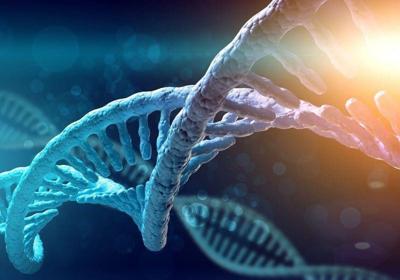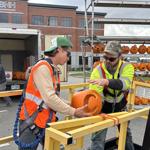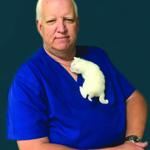Key Takeaways
Millions of Americans carry hidden genetics that increase cancer risk
As many as 5%, or 17 million, have such variants
These genetics increase risk regardless of family cancer history or personal lifestyle choices
FRIDAY, Oct. 31, 2025 (HealthDay News) — Millions of Americans carry hidden genetic mutations that increase their risk of cancer, regardless of their family’s cancer history, according to a new study.
As many as 5% of Americans, or about 17 million, have genetic variants linked to cancer, researchers recently reported in the Journal of the American Medical Association.
The results suggest these mutations might be more common than previously thought, researchers said.
“Genetic testing has traditionally been reserved for individuals with strong family histories or other high-risk indicators,” said senior researcher Dr. Joshua Arbesman, a dermatologist at the Cleveland Clinic.
“Our findings show that many people with pathogenic variants fall outside those criteria, suggesting we may be missing opportunities for early detection and prevention,” he continued in a news release. “This research also highlights the importance of regular cancer screenings for all Americans – not just those with a family history or other risk factors.”
For the new study, the research team focused on more than 70 common cancer-related genes, identifying more than 3,400 unique mutations among them.
These gene mutations increase risk among people regardless of their family history or lifestyle factors like drinking, smoking, diet or exercise, researchers said.
The study builds on prior research by the same team which found that genetic predisposition to melanoma was 7.5 times higher than national guidelines estimated.
“Knowing the prevalence of gene variants in the general population will give us a clearer picture without any pre-assumptions based on lifestyle or family history,” researcher Ying Ni, an assistant professor of translational genomics at the Cleveland Clinic, said in a news release.
Researchers said they hope these results will support broader adoption of routine cancer screenings like mammography and colonoscopy.
“Early detection remains the best defense against cancer,” Arbesman said. “Our findings show how widespread cancer risk variants are, underscoring the importance of regular screenings. Long term, we hope to build a truly comprehensive list of genes that guide cancer screening and prevention, so we can find people who would benefit from proactive care.”
More information
The National Cancer Institute has more on the genetics of cancer.
SOURCE: Cleveland Clinic, news release, Oct. 27, 2025
What This Means For You
People should get regular recommended screenings for cancer.





















(0) comments
Welcome to the discussion.
Log In
Keep it Clean. Please avoid obscene, vulgar, lewd, racist or sexually-oriented language.
PLEASE TURN OFF YOUR CAPS LOCK.
Don't Threaten. Threats of harming another person will not be tolerated.
Be Truthful. Don't knowingly lie about anyone or anything.
Be Nice. No racism, sexism or any sort of -ism that is degrading to another person.
Be Proactive. Use the 'Report' link on each comment to let us know of abusive posts.
Share with Us. We'd love to hear eyewitness accounts, the history behind an article.